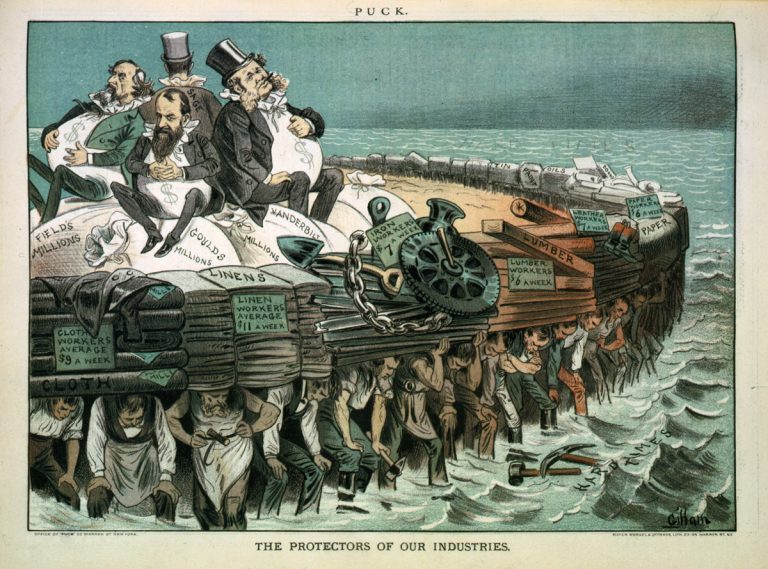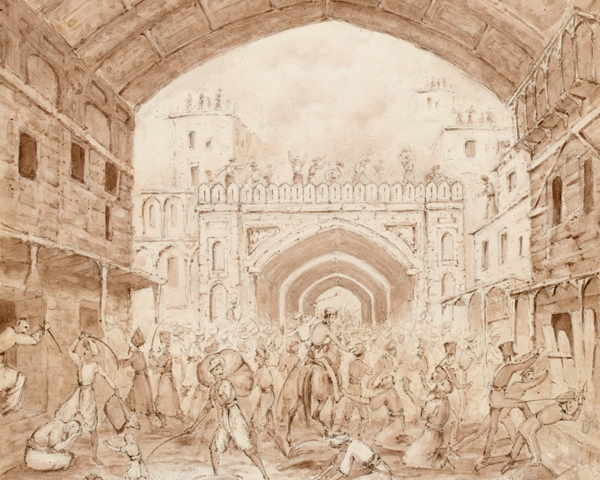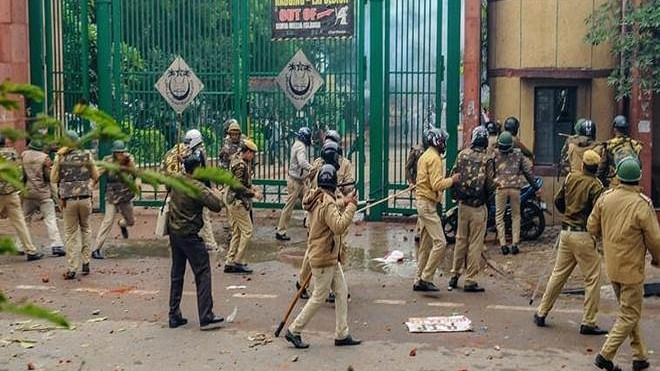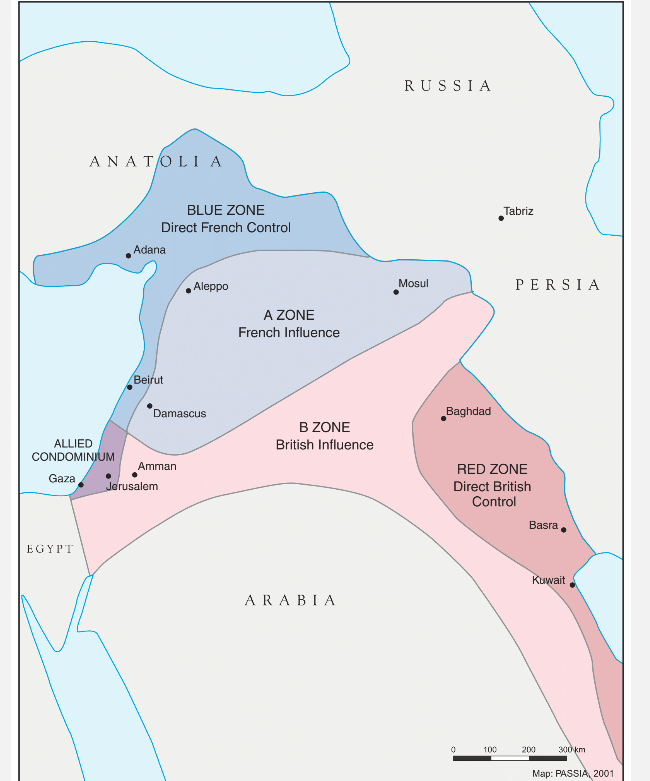At the end of the 19th century the US acquired a substantial overseas empire – Hawaii, Samoa, Guam, the Philippines, Puerto Rico, Cuba, as well as imperialist relations all around the world. In this miniseries we look at this Yankee Imperialism, focusing on the Spanish-American War. But first, the post-Reconstruction domestic situation in the US – the robber barons, the violent strikes, and the racial apartheid that fueled the American system. We use two books that are two sides of the same people’s history coin: Dave reads from Howard Zinn’s People’s History of the United States; Justin from J Sakai’s Settlers.
Category: Anti-Empire Project Podcast
The Anti-Empire Project podcast (formerly the Ossington Circle)
Civilizations 36b: Islam & Imperialism 3b – the rest of the Anglo-Afghan Wars
A strategically bankrupt expedition by a vindictive, racist, imperialist power to conduct a series of genocidal atrocities on a Muslim population solely because they dared to fight back. And no, we aren’t talking about last week – we conclude the Islam & Imperialism segment of Civilizations with the Anglo-Afghan wars starting with the Army of Revenge in 1842 and going down to the fixing of the Durand Line. What could go wrong?
AEP 85: The Rise of the Right in India and Elsewhere, with Prof. Apoorvanand
In early May 2021, I had the honor of being on a panel on the Rise of the Right with Prof. Apoorvanand of Delhi University (and some other great speakers as well). I asked Apoorvanand to have a follow-up discussion with me here to analyze how the far-right ecosystem of organizations and institutions infiltrated Indian society and took it over, including the education sector and universities, and what lessons that takeover might have for people interested in trying to defend society. Lessons for India and elsewhere too.
Special Broadcast: Ceasefire in Gaza
We reconvene the roundtable to discuss the ceasefire in Gaza. Nora Barrows-Friedman is an editor at the Electronic Intifada, Jon Elmer is a journalist who lived for years in Gaza, Justin Podur is the author of Siegebreakers, and Tarek Loubani is an emergency room doctor, often at Shifa, Gaza’s main hospital.
This broadcast is a co-production of The Brief Podcast and The Anti-Empire Project. Production by Pierre Loiselle and music by Greg Wilson.
Episode: Ceasefire in Palestine (special broadcast)
Date: 26 May 2021 | Length: 51:12
AEP 84: Kung Fu Yoga – China, India, and Israel/Palestine with Carl Zha
In the wake of Israel’s 2021 massacres in Gaza and violence elsewhere in Palestine, and a few days into the ceasefire, Carl Zha and I talk about the histories of India and China with Israel and Palestine. We speculate about what the future of a multipolar world with a stronger China might portend for the Israel/Palestine conflict and conclude, sadly, that the answer is: not much.
Monsters in our Midst 4: Would Gandhi Support Palestinian Armed Resistance?
Concluding the miniseries by Dan Freeman-Maloy.
Gandhi’s slogan was “Do or Die”, following Byron’s poem about the (pointless) Charge of the Light Brigade during the Crimean War. He emphasized that he would prefer violent resistance to cowardice or surrender. So, the question arises: would Gandhi have supported armed resistance in Palestine?
Monsters in our Midst 3: What is the Gaza Strip? Why Support the Resistance?
The focus on Hamas is a product of the rolling amnesia of empire, as if the history of Israeli attacks on Palestinians can be narrowed to the last few decades, then distorted further. Against this tendency, this episode reviews the basic historical and geographic background to this crisis, showing the place of Palestine and the Gaza Strip in the history of imperial expansion, and placing the current horrors in their essential context.
Monsters in our Midst 2: Anti-Black and Anti-Palestinian Racism are Connected
Episode 2 of a mini-series on Israel/Palestine by Dan Freeman-Maloy.
Sometimes the connections are obvious. The American-Israeli Meir Kahane, for example, worked as a white-backlash activist in the United States, targeting Black-led social movements, before moving to Palestine and coaching settlers to kill Palestinians, with what Jewish organizations across the world then denounced as racist hate and violence.
More generally, the Scramble for Africa — that is, the classical period of white colonization of the African continent — was part and parcel of the same imperial expansion that swept across Palestine during World War I. It was then that Britain extended its reach across Palestine and that the road to Israeli statehood was paved. Theme by theme, European settler colonial politics that had been crafted in the Americas and in Africa were applied to Palestine. The association of the Zionist movement with British settler polities (the “Dominions”) was once proud.
The connections are manifold. European colonization in Africa and West Asia (or the Middle East) shared key patterns and was shaped by some of the same personnel, just as national liberation movements in both areas have a rich history of exchanges. In this episode, we focus on some of the shared patterns of deception that empire developed as it told moralizing tales about its righteousness in different parts of the world.
As Malcolm X phrased it: “if you study how they do it here, then you’ll know how they do it over here. It’s the same game going all the time.”
Monsters in our Midst: Israel’s Descent into Fascism 1
Episode 1 of a new mini-series by Dan Freeman-Maloy.
Since the Israeli elections of March 2021, a political philosophy, Kahanism, that was once banned even by Israeli law is openly proclaimed in the Israeli legislature. To the quieter brutality of Israeli colonial rule have been added firebombing Israeli hate crimes against Palestinians – horribly reminiscent of Ku Klux Klan violence – and the open celebration by emboldened Israeli racists of Palestinian pain and death. A colonialism that was once half-hidden is now there for the world to see. This has been clear since Israel’s 2014 killing of hundreds of Palestinian children under the command of current Israeli defence minister Benny Gantz. It was clear after the vicious celebration by Israel’s extreme right wing of a 2015 firebombing of a Palestinian family. And now the horrors of spring 2021.
This is not Judaism. As Yeshayahu Leibowitz warned, this is something else.
As our governments refuse even to speak out against the killing of Palestinian children by an Israeli government that they arm and support, the Israeli press fills with warnings of fascism and, time and again, references to the Third Reich. The lying hypocrisy that refuses to discuss this truth plainly is an affront to humanity, to Judaism, and to all principles of honesty and conscience.
Haidar Eid of Gaza’s Al-Aqsa University has discussed these horrors as the Sharpeville moment of the Palestine tragedy, referring to a tragic but hinge moment in the struggle against South African Apartheid. Refusing to ignore warnings about Israel’s descent into fascism does not mean accepting any further horrors; it certainly does not mean ignoring the inspirational steadfastness of Palestinians. It means taking an honest look at plain facts, warning signs, and anti-racist principles that deserve more than lip service and post-2020 liberal re-branding.
In this first segment of “Monsters in Our Midst,” we underline the legitimacy of anti-racist references to the struggle against old hatreds in the context of Israel’s descent into fascism.
Special Broadcast: War in Palestine 2021
Recorded on Day 7 of the war in Palestine, this roundtable brings together decades of experience working in Palestine. Nora Barrows-Friedman is an editor at the Electronic Intifada, Jon Elmer is a journalist who lived for years in Gaza, Justin Podur is the author of Siegebreakers, and Tarek Loubani is an emergency room doctor, often at Shifa, Gaza’s main hospital.
This broadcast is a co-production of The Brief Podcast and The Anti-Empire Project. Production by Pierre Loiselle and music by Greg Wilson.
Episode: War in Palestine (special broadcast)
Date: 17 May 2021 | Length: 60:17







